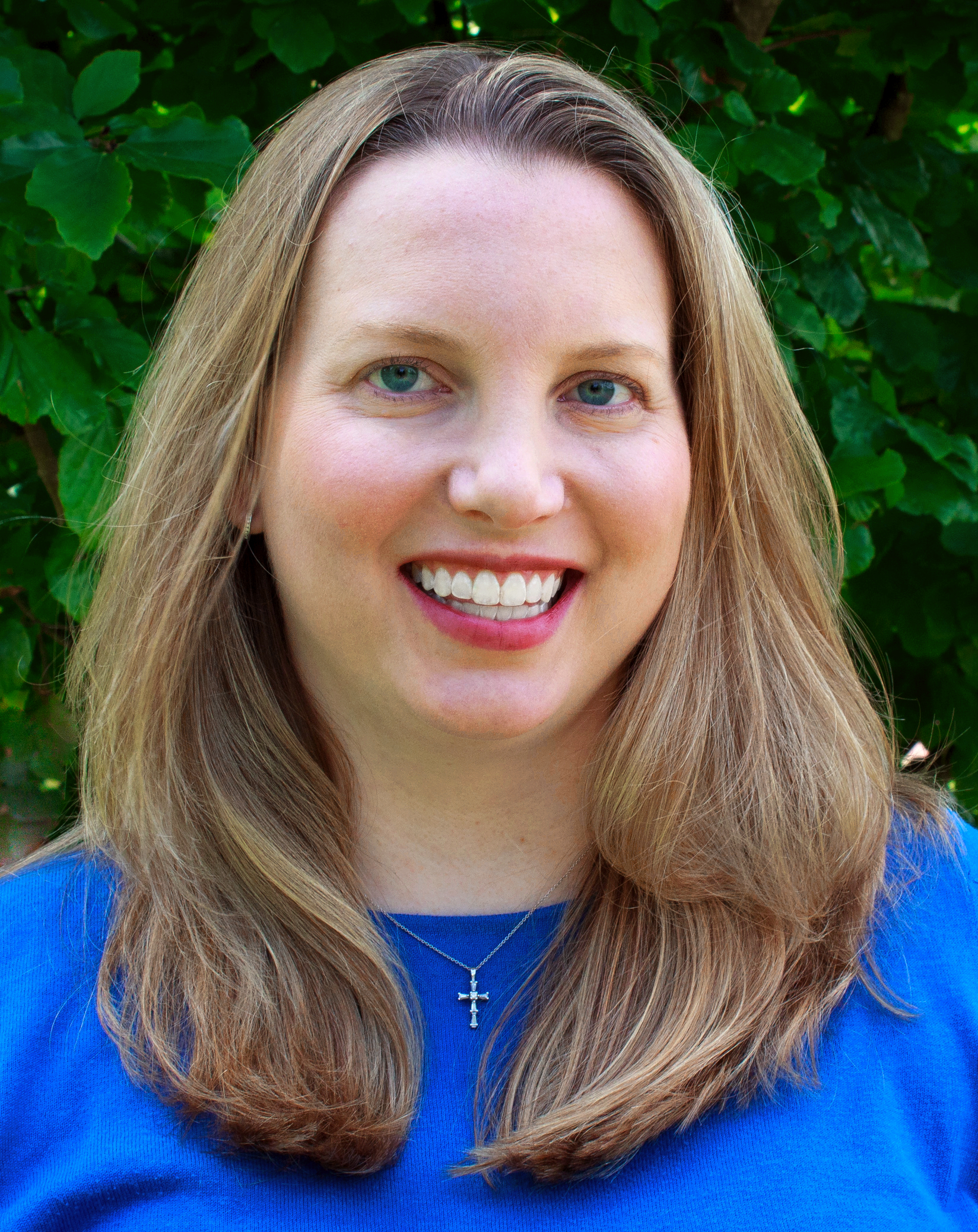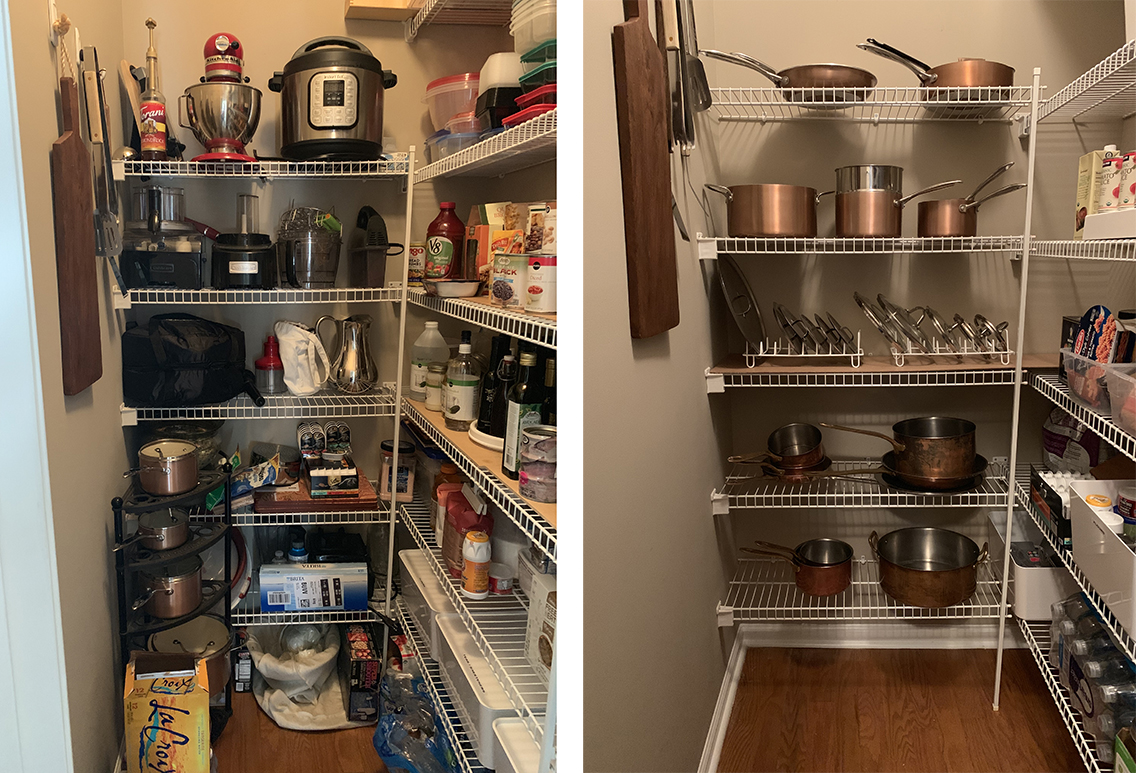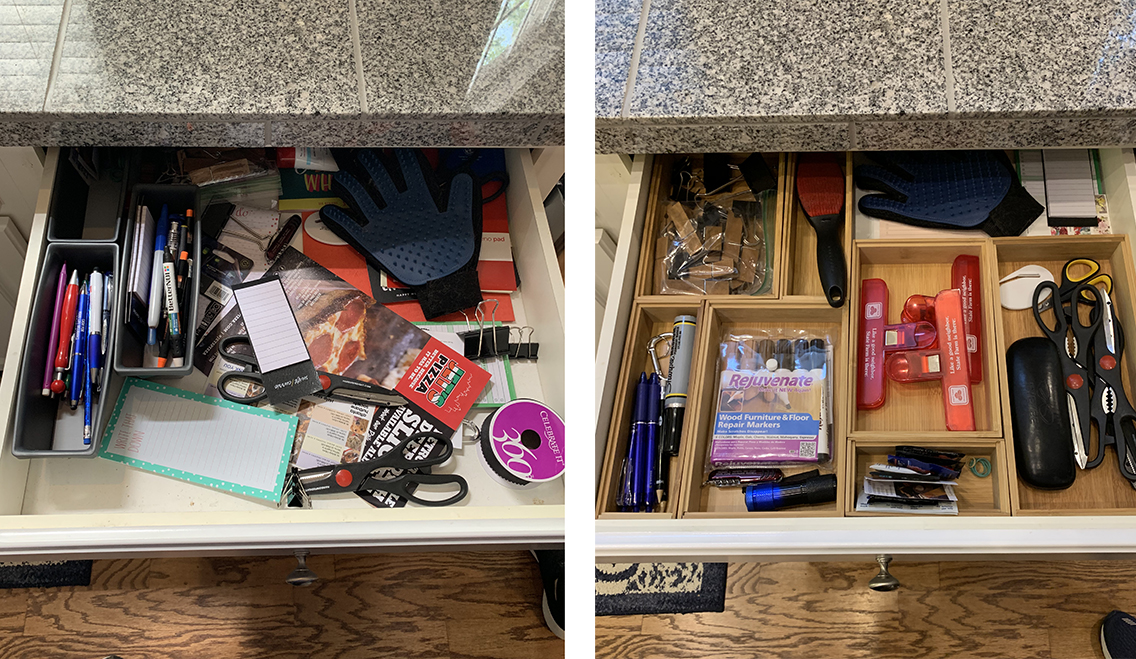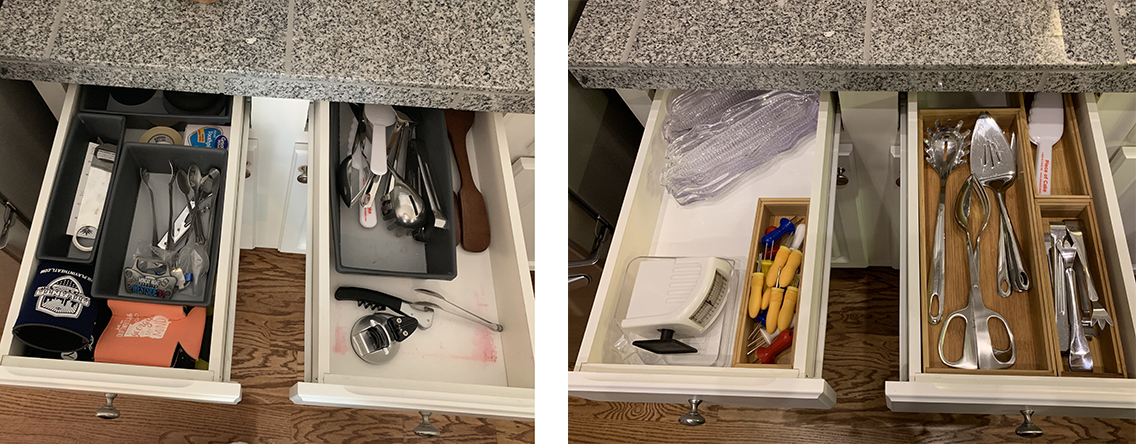
Lindsey Hardegree (’06) says she loved Z. Smith Reynolds Library so much that she sometimes hung out in the stacks just to relax, and she developed a fascination with the Library of Congress call number filing system.
“Sitting in the stacks around all of these books felt good,” says Hardegree. “I’ve got over 1,000 books in my own personal library, and they’re organized the way that the Wake Forest library is organized. I even call it my stacks, which just sounds so ridiculous and silly, but it brings me a lot of joy.”
So perhaps it’s not surprising that she has recently become a professional home and office organizer. And not just any organizer — but Georgia’s first and only Certified KonMari Method™ Consultant, helping clients use the “tidying” system created by Marie Kondo, a Japanese woman whose best-selling book and Netflix show have become a world phenomenon. So many people applied to become consultants for Kondo’s method that she stopped taking names for her spring training seminar when the waitlist hit 500 people, Hardegree says.
Hardegree’s new role comes on top of her full-time (and very Pro Humanitate) job as executive director of the Episcopal Community Foundation for Middle and North Georgia. She provides consulting and financial help for churches in more than 110 parishes in the Diocese of Atlanta. The foundation helps fund outreach services focused on homelessness, hunger, generational poverty, human trafficking, refugees and those impacted by the criminal justice system.
Since she began the job three years ago, annual giving has increased by 117%, and she rebuilt the grant-making system, resulting in 45 grants totaling more than $526,000.
“It’s really exciting to be able to help people serve where they feel like they’re called to serve,” Hardegree says.
In 2015, she was recognized in the Atlanta Business Chronicle’s inaugural “30 Under 30” after working as the first development director for the Atlanta Beltline Partnership and as special events and board manager for the Alliance Theatre. She also has been a principal for Tizzy Consulting for nonprofits and small businesses since 2009. She has a master of fine arts in performing arts management from the University of North Carolina School of the Arts and a master of theological studies from Nashotah House Theological Seminary in Wisconsin.

A pantry with before and after decluttering photos from a client of Lindsey Hardegree ('06)
Hardegree says Wake Forest was a formative place for many reasons — friends who remain in her life and the diversity of people and ideas she encountered. Her life has taken many turns she didn’t expect as a theatre and English major.
“What was most important about my time at Wake was not that I learned how to do X,Y,Z but rather that I learned more about myself and how to make decisions and how to work with people. Those are things that are translatable no matter what the X,Y,Z.”
She can thank her friends for unintentionally steering her toward Marie Kondo. “I actually for years have been helping my friends with organizing their things in their own homes just because, you know, good friends, you do it if they offer you some pizza and some wine. Seems like a good trade-off,” she says with a laugh.
She read Kondo’s “The Life-Changing Magic of Tidying Up,” and it validated much of Hardegree’s advice to her friends. “I got to the point where I said, ‘I’m still enjoying this. I’m not tired of doing this. I’m finding this fulfilling work. Maybe I should look into this a bit more seriously and get paid in money as opposed to pizza and wine.’”
That was about the time Kondo began offering certified consultant training. Hardegree was waitlisted but made it into the seminar in New York City last spring with about 100 people from 20 countries. After the weekend seminar, seasoned consultants help attendees with “practice” sessions with clients until they accumulate enough hours, pass an examination and sometimes do required follow-up work to earn certification. In June, she officially became Consultant No. 281 at www.getorganizedyall.com. She also belongs to the National Association of Productivity & Organizing Professionals.

A dreawer with before and after decluttering photos from a client of Lindsey Hardegree ('06)
The core of the KonMari system is not just cleaning and organizing but identifying the lifestyle that fulfills you, “then very slowly, methodically examining everything that you own and deciding, ‘Does this fit into what I see as my ideal lifestyle?’” Hardegree says. “And (Kondo’s) shorthand for that is ‘Does this spark joy?’”
Sometimes clients just have too many items in a particular place. Perhaps a hobby no longer brings joy, “and every time you see the basket with the knitting needles in it, it makes you frustrated that you never liked knitting. And maybe we can get rid of that attitude.”
Some people are skeptical. “I think a lot of people get hung up on the word ‘joy,’ and they assume, ‘Well, my toothbrush doesn’t make me joyful, so should I get rid of that?’ Well, are clean teeth a part of your ideal lifestyle? Then maybe your toothbrush does spark joy.”
The method reframes how you see your belongings, Hardegree says.
Most people declutter by attacking one room at a time, but Hardegree says the KonMari method is organized around the type of belonging, examined in a specific order, always starting with clothes. Each person piles every item of his or her clothing from anywhere in the house into one place and goes through one piece at a time to decide if it brings joy. This can take a few hours or dozens of hours, depending on the person.
Clothing is first because people have a visceral response to it. “It really does help you get an understanding of what it means to spark joy,” Hardegree says.
The next category is books, “which are totally different from clothing but are pretty easy for most people to sort.”
Next is paper, a category that often finds people keeping documents “just in case” even though they don’t need them.
Fourth is “komono,” basically miscellaneous items. “It’s everything in the kitchen, everything in your bathroom, everything in your garage, your cleaning supplies, all of your dishes.”
The final category is sentimental. “You can very thoroughly and clearly determine what sparks joy for you because you’ve already done all the easy stuff first.”
The number of sessions, their length and spacing are customized. Hardegree says many organizing professionals shy away from talking publicly about cost because consultants determine their own fee structure.
Consultants don’t sort or tell clients what to do, Hardegree says. They give advice and hold clients accountable on whether they meet their own goals.

Before and after images of two drawers decluttered by Lindsey Hardegree's client.
Her work has surprised her, Hardegree says. A friend was an early client, and Hardegree expected this passionate executive to want her work and her many activities with her husband to be a big part of her ideal lifestyle.
“The No. 1 thing that came up is that she has a hard time drawing the line when she comes home. She is so caring and loving of her friends, but sometimes she has difficulty finding space for herself cause she’s so busy caring for others. She needed her home to be a refuge for her and a place where she didn’t have to make a bunch of decisions because she has to make so many decisions at work. That was not in a million years what I would have thought for her.”
Hardegree says the consulting work is fulfilling. “I feel blessed to be able to help people to realize the things that they’ve been wanting for themselves. They just need somebody to say, ‘You can do it, and let’s do it and take that step.’ I didn’t figure that would be my primary takeaway.”
The funniest “transformation” so far was a client who had a 3-foot portrait of herself in high school in a beauty pageant gown, a self-image she no longer carries. She created a cleaning supply closet under her stairs that she calls “the closet of domesticity” and hung the portrait inside the door. She always tells her guests to check out the closet to see them laugh. “Every time she opens that door it makes her smile,” Hardegree says.
In her own home, Hardegree clearly kept a lot of books — they make her happy. She cleared out so much in her kitchen that she has more than one empty cabinet. Her hardest task was the sentimental items, especially since her mother had saved virtually every childhood memento. Hardegree ended up taking photos rather than keeping them in boxes she would rarely open.
“I felt really proud of myself for doing that because I’m in my mid-30s and how long have I been carrying these boxes around and never given myself the permission to be OK with letting them go?” she says.


